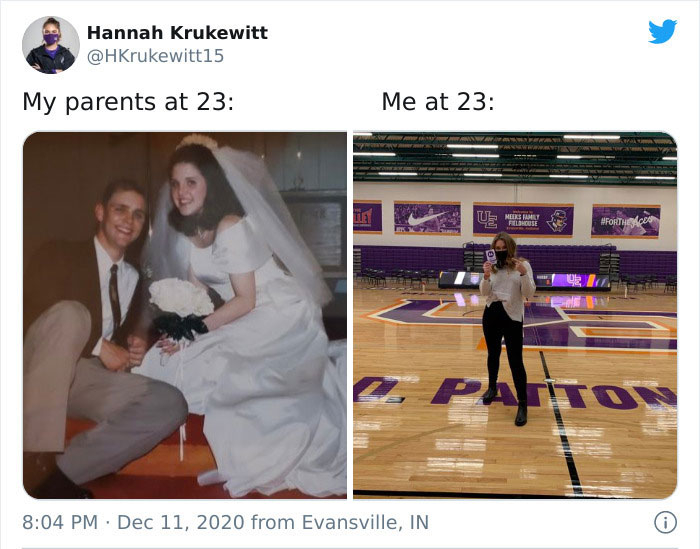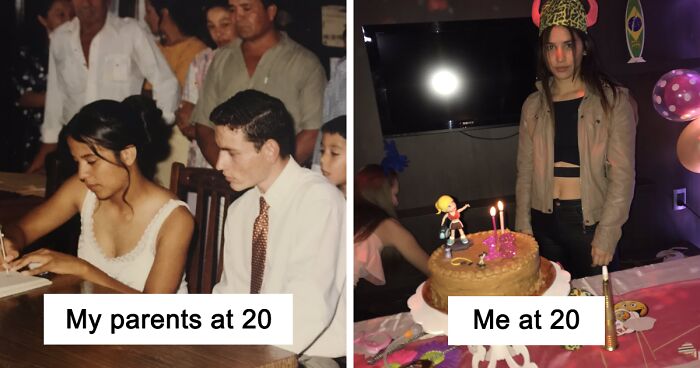We can’t compare the life we lead to the life our parents have lived. There is a huge difference in culture, technology, thoughts, and idea that we have and they have at our age. So, we have compiled some images together shared by people on social media in the “My Parents Vs. Me” challenge on Twitter.
Scroll down to see what are the major differences you can find, and relate to. Don’t forget to leave your comments below.
1

We were curious to find out more about the Me Vs. My Parents Challenge. So, Hiptoro reached out to a social media influencer. A Twitter handle named @Bloody5Iveezy.
Iveezy’s post with the caption “My parents at 24 vs. me at 24” which went viral, and had an amassing 637.6K likes and 67.8K retweets.
“In my opinion, a big difference is how relaxed we are. We don’t care what people will say, it’s not all work. We have a big emphasis on living life, being happy, and having fun.”Iveezy also said that so many people related to the challenge because “we are all tired of the assumption that everyone wants to get married and have kids.”
For him, being a first-generation Mexican American, it’s almost taboo not to want a big religious wedding with lots of kids. “And my picture says the complete opposite: ‘I’m just a 24-year-old Mexican that likes whiskey dressed like a unicorn and I’m not worried about anything.’”
When asked what kind of challenges Iveezy’s generation has to face, the social media influencer said it’s information. “In my parents’ day, you were limited to who you knew and what you knew about them. Relationships are so hard now because someone will always tell your partner ‘oh yeah, I’ve seen them before with so and so’ or ‘yeah, I’ve heard of ’em, have you seen his tweets?’”
“Besides the social aspect, our parents didn’t know what depression or anxiety was. They felt the symptoms, but didn’t recognize the condition,” Iveezy explained. Meanwhile, “my generation does and if I know I’m depressed, the last thing I’m worried about is marrying someone, so yeah, information is our double-edged sword,” he concluded.
2
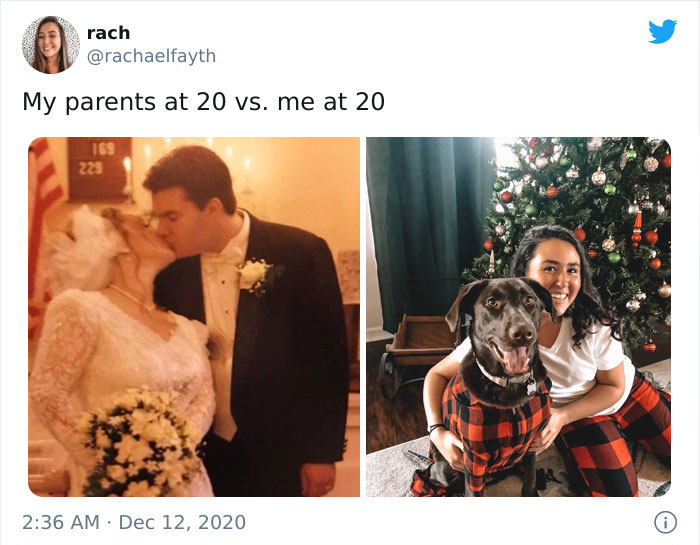
The difference in ideas of millennials and our parents are a world apart. The cultural, traditional, technological, and emotional shift has made a drastic contribution to the ways millennials and our parents think. Today, they make up the second-largest generation in the US electorate, hence the Democratic leanings compared to previous generations.
According to Pew Center, “Today’s young adults are much better educated than their grandparents, as the share of young adults with a bachelor’s degree or higher has steadily climbed since 1968.” 4 in 10 millennials have a bachelor’s degree or higher.
However, the financial well-being of millennials is still questionable. “The individual earnings for young workers have remained mostly flat over the past 50 years. But this belies a notably large gap in earnings between millennials who have a college education and those who don’t.”
3
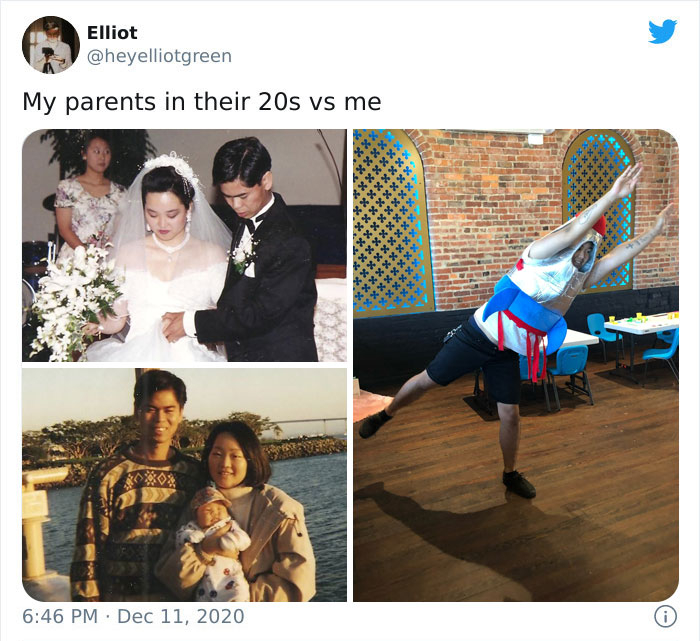
4
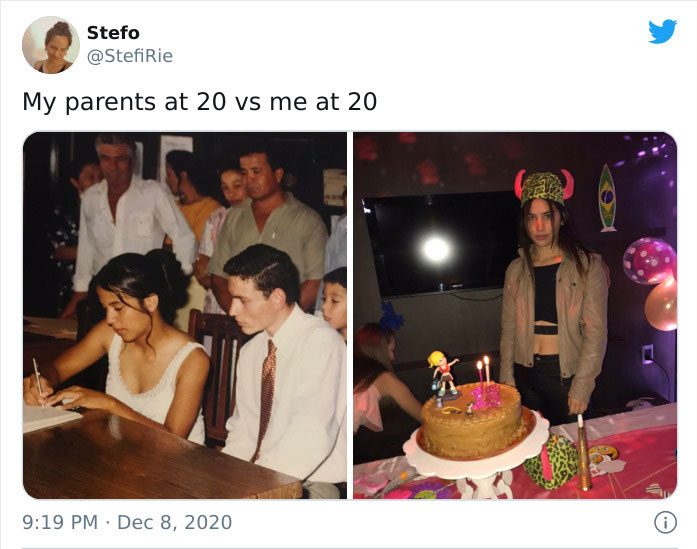
5
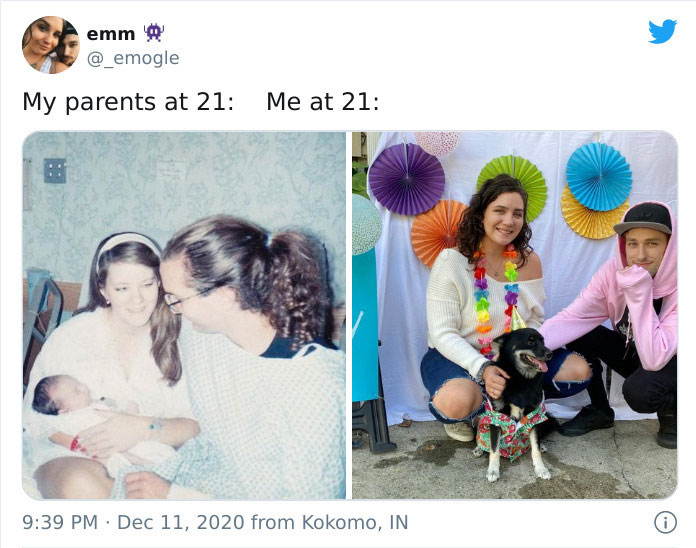
6
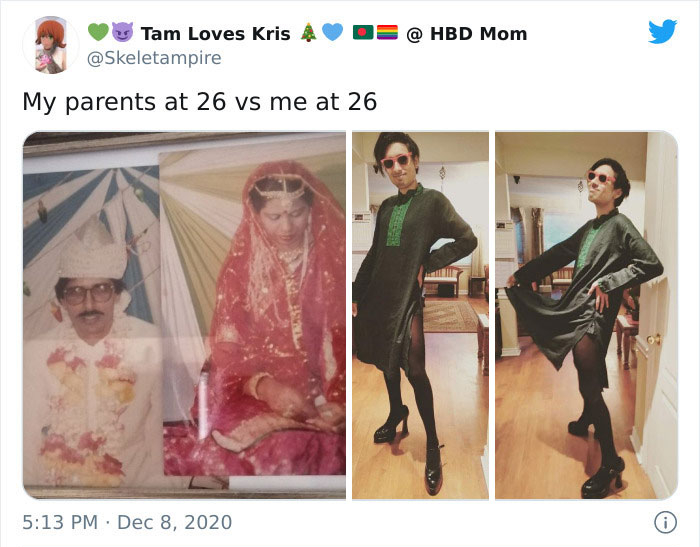
Pew Research showed that millennial workers with some college education made $36,000, lower than the $38,900 that baby boomer workers made in 1982 when they were the same age.
Also, millennials were hit hardest by the great recession so, they are slower in forming their households. This is why, most of them are still living with their parents, and are also less interested in making families. The “Me vs. My Parents” challenge proves this.
Pew Center suggests that adults who do not want to get married are increasing in each successive generation. “If current patterns continue, an estimated one-in-four of today’s young adults will have never married by the time they reach their mid-40s to early 50s—a record high share.”
7
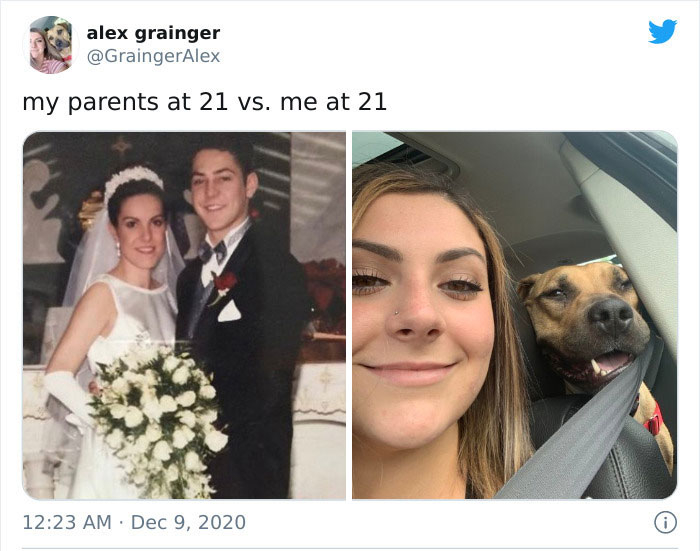
8
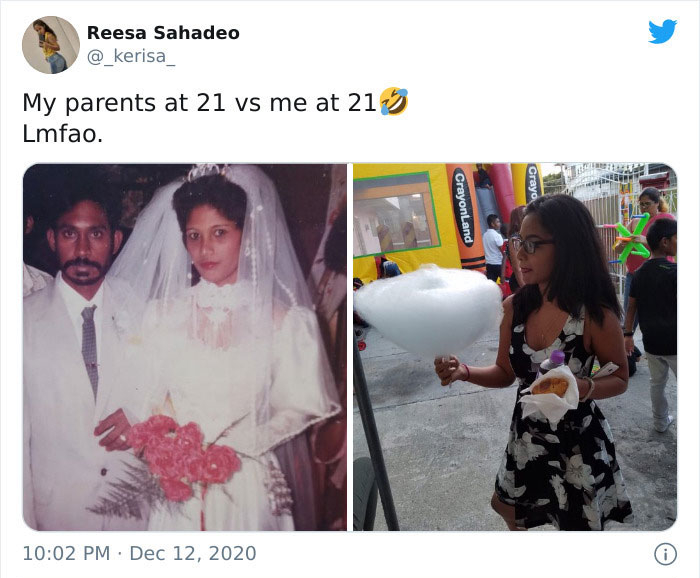
9
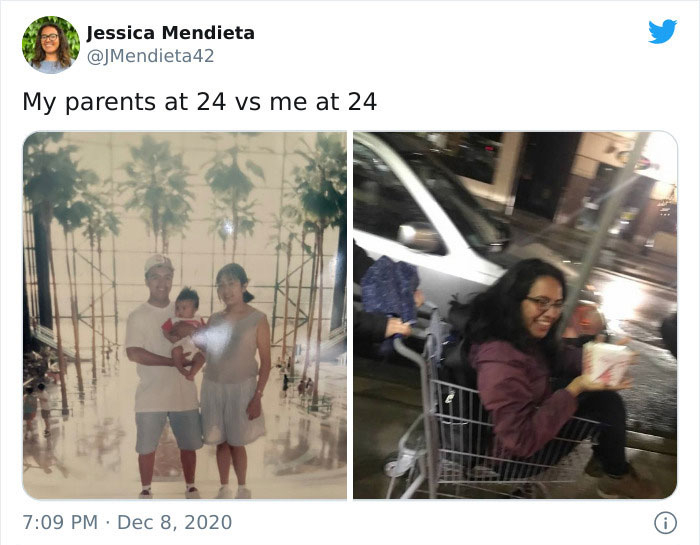
10
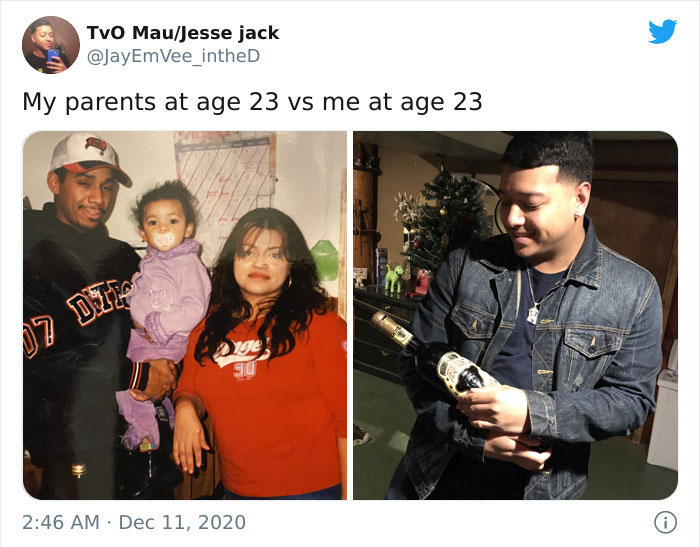
11
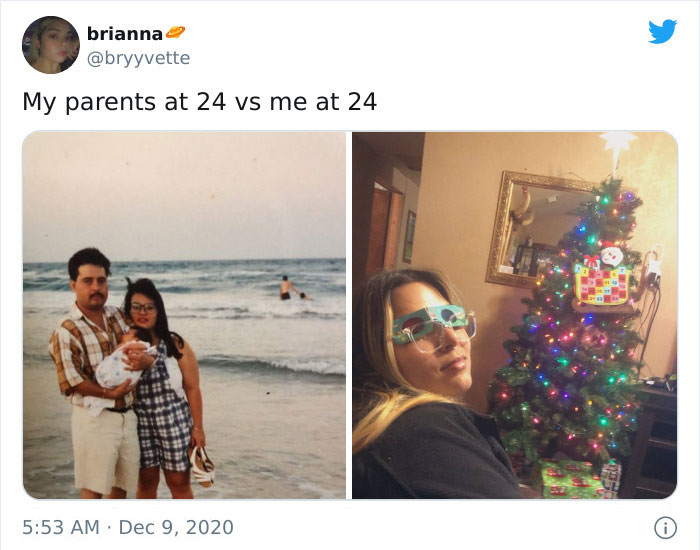
12
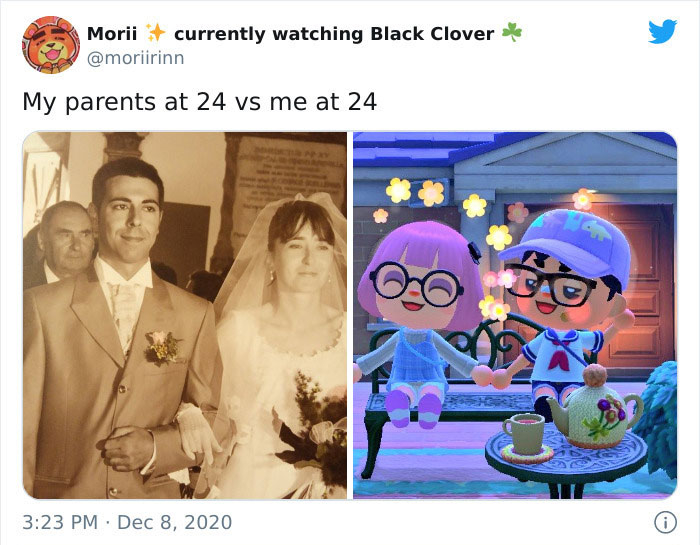
13
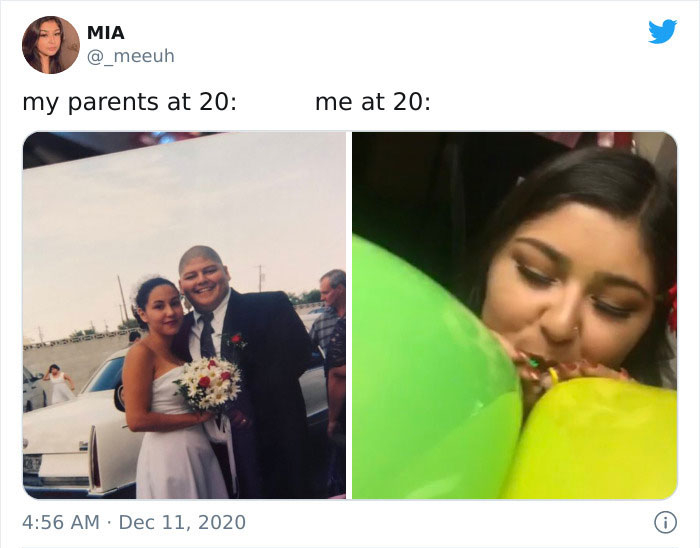
14
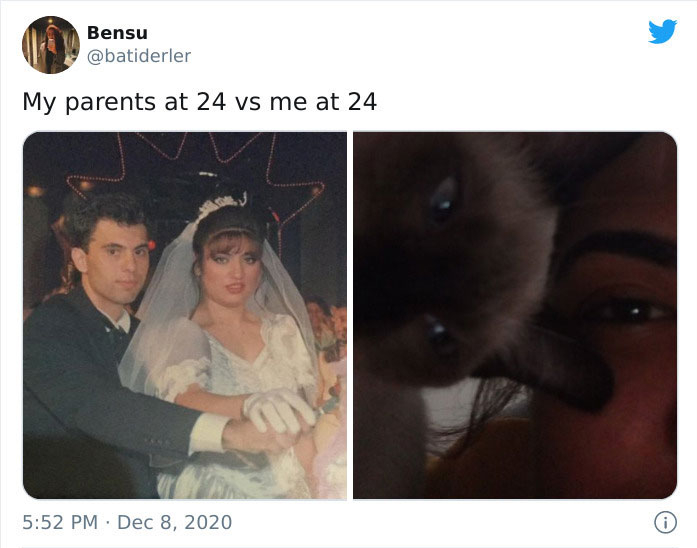
15
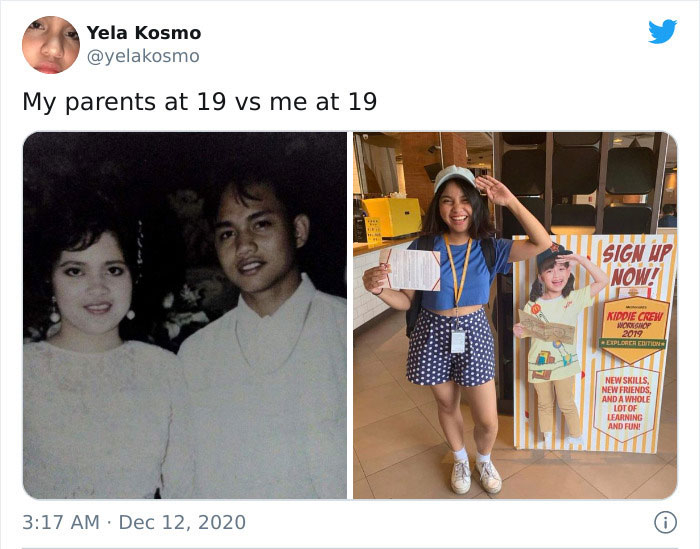
16
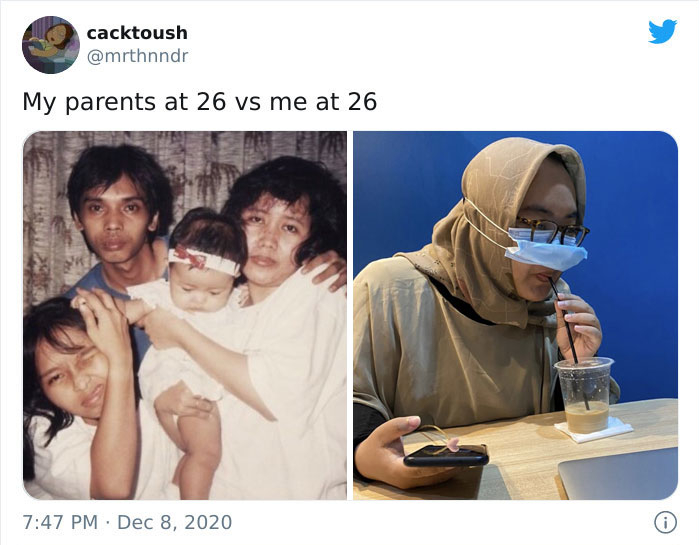
17
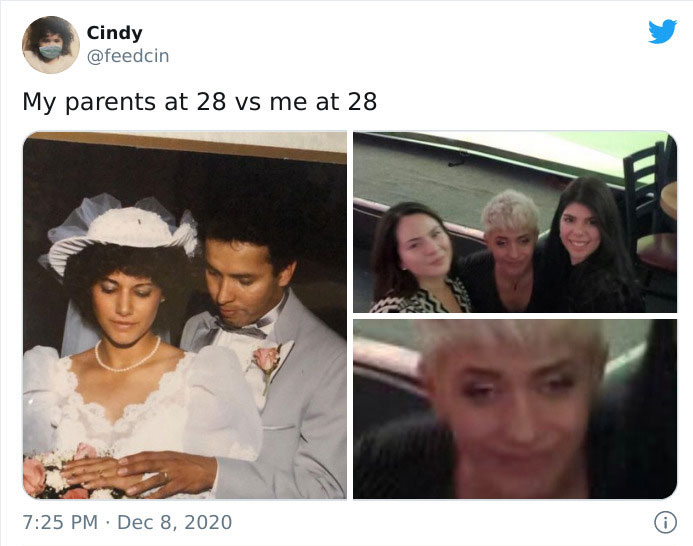
18
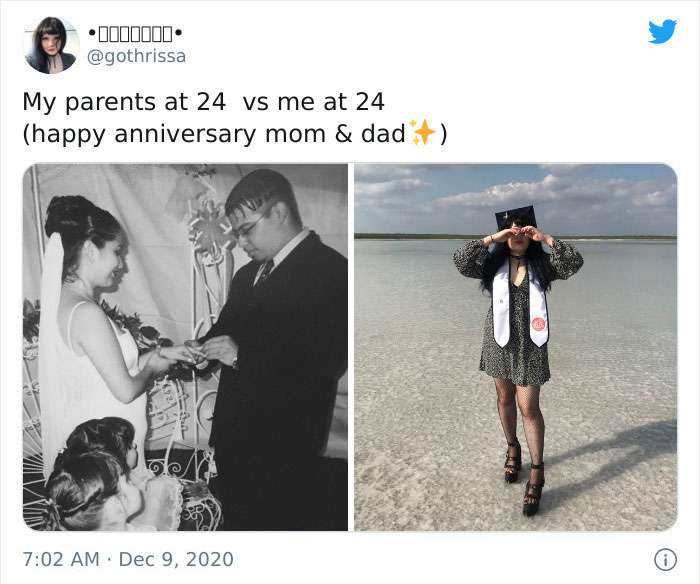
19
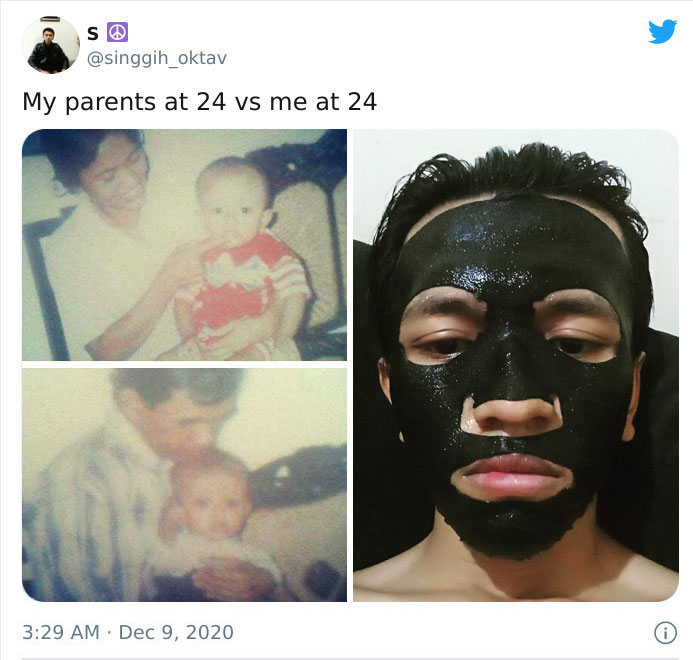
20
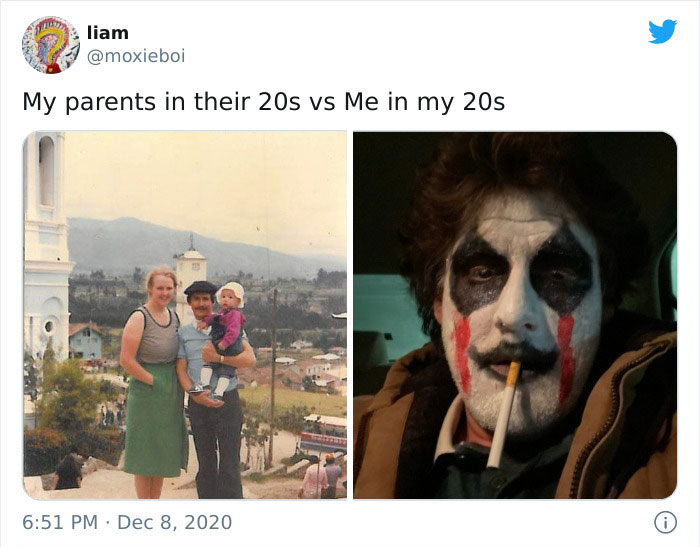
21
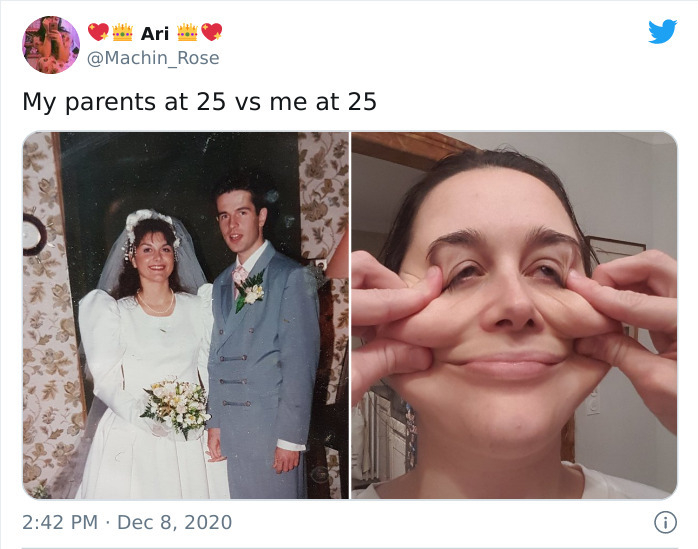
22
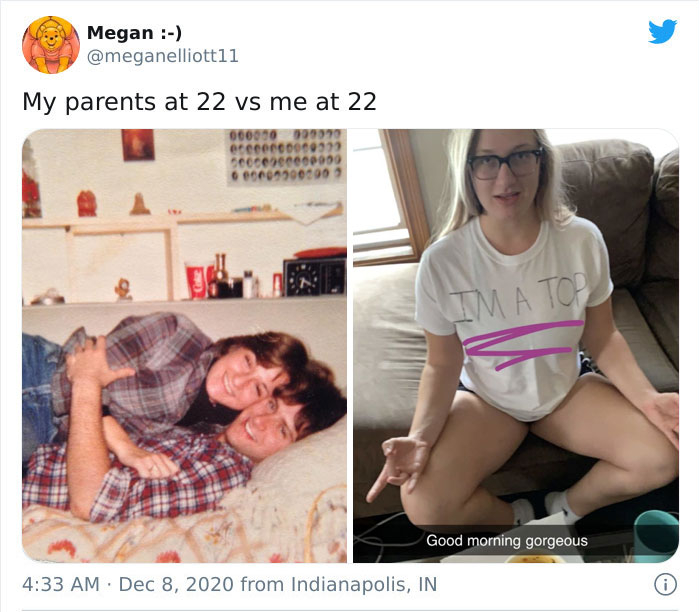
23
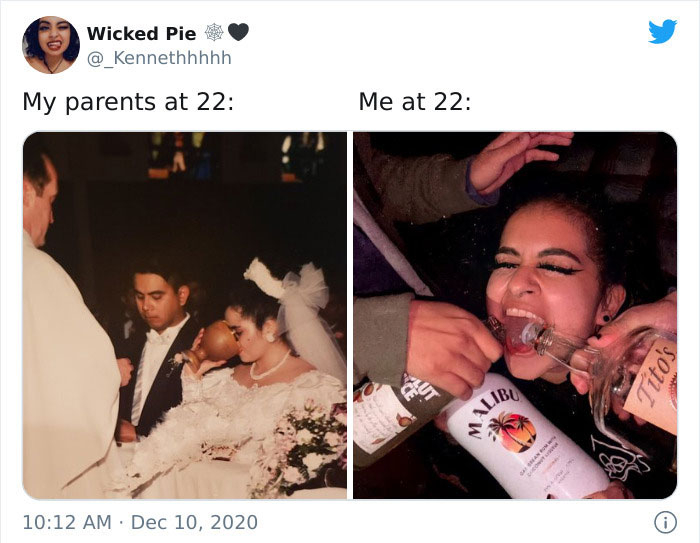
24
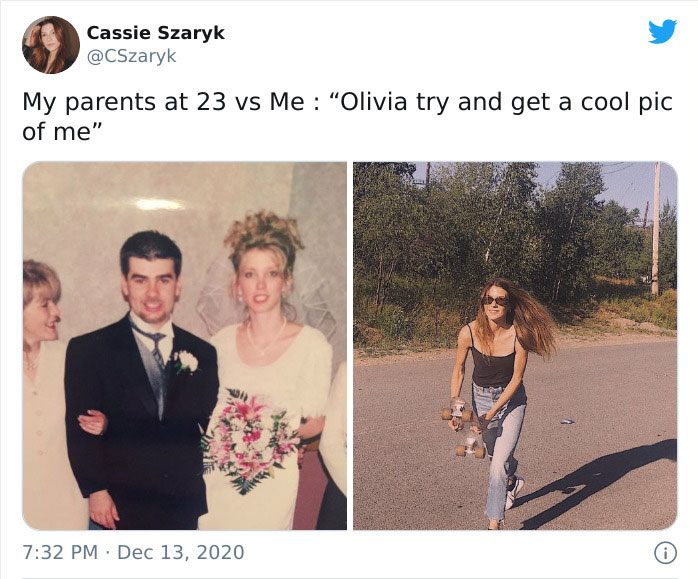
25
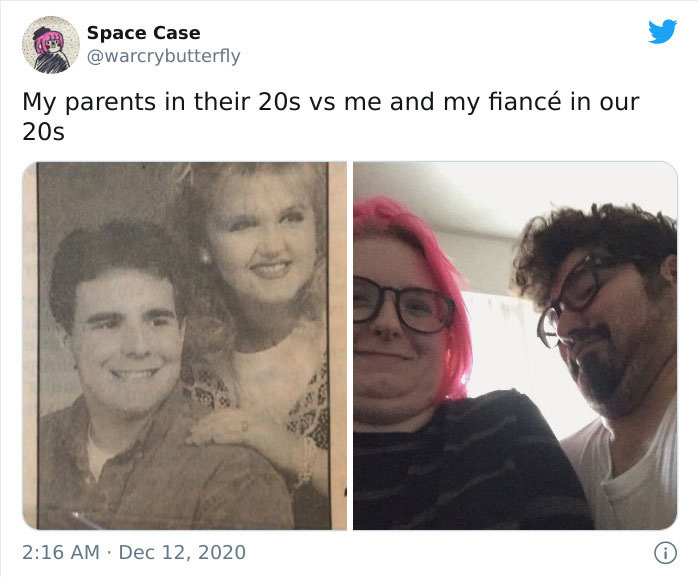
26
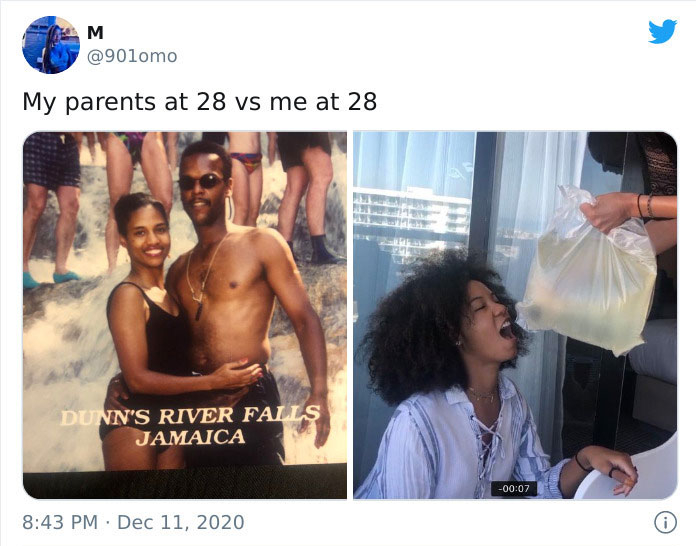
27
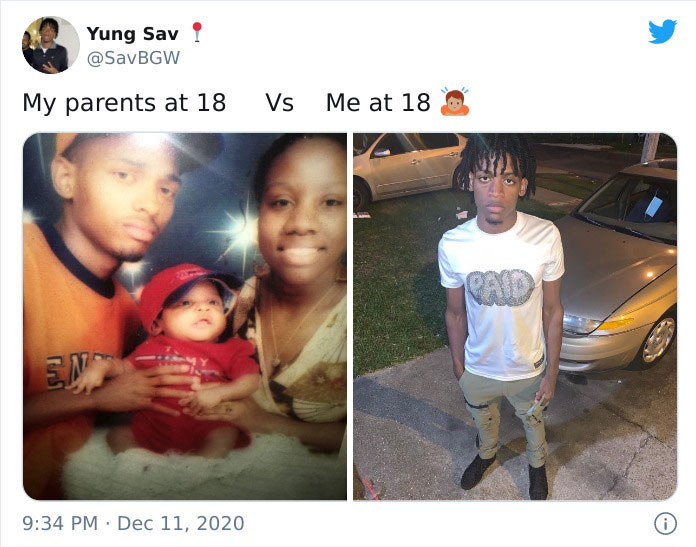
28
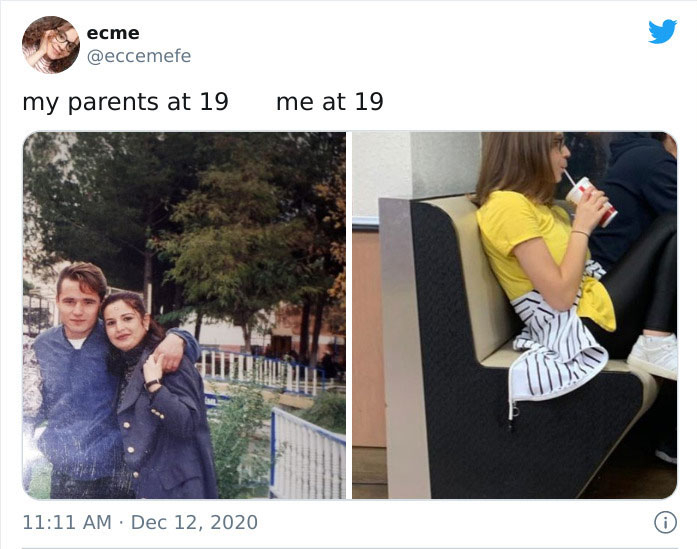
29
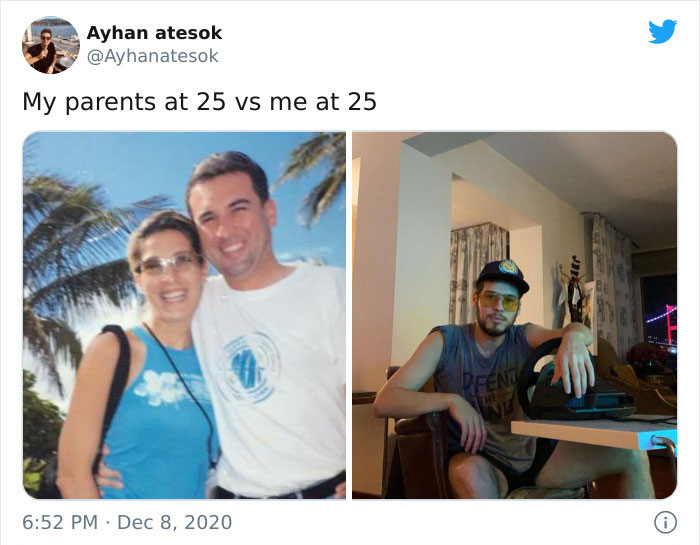
30
